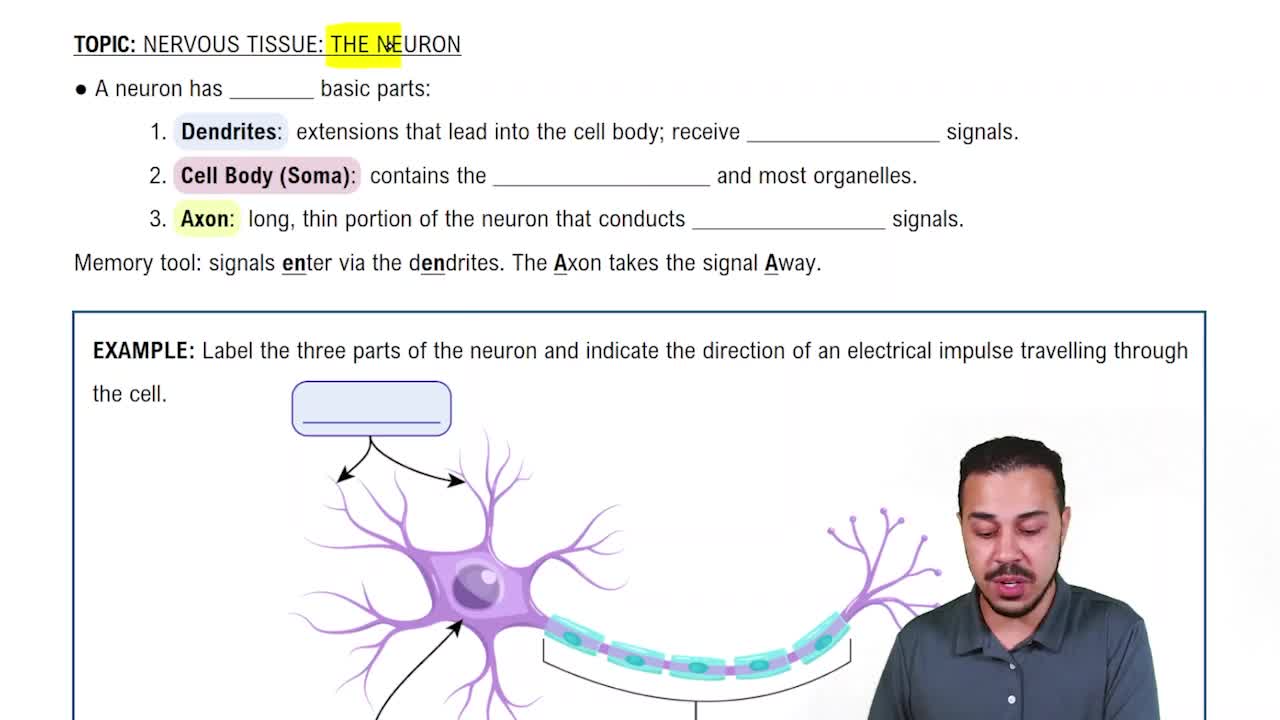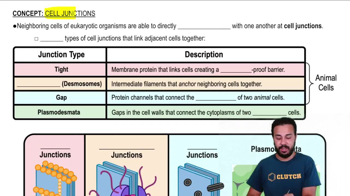Multiple Choice
Which of the following is a primary feature of nervous tissue?
82
views
 Verified step by step guidance
Verified step by step guidance Verified video answer for a similar problem:
Verified video answer for a similar problem:



 4:36m
4:36mMaster Intro to Nervous Tissue with a bite sized video explanation from Bruce Bryan
Start learning